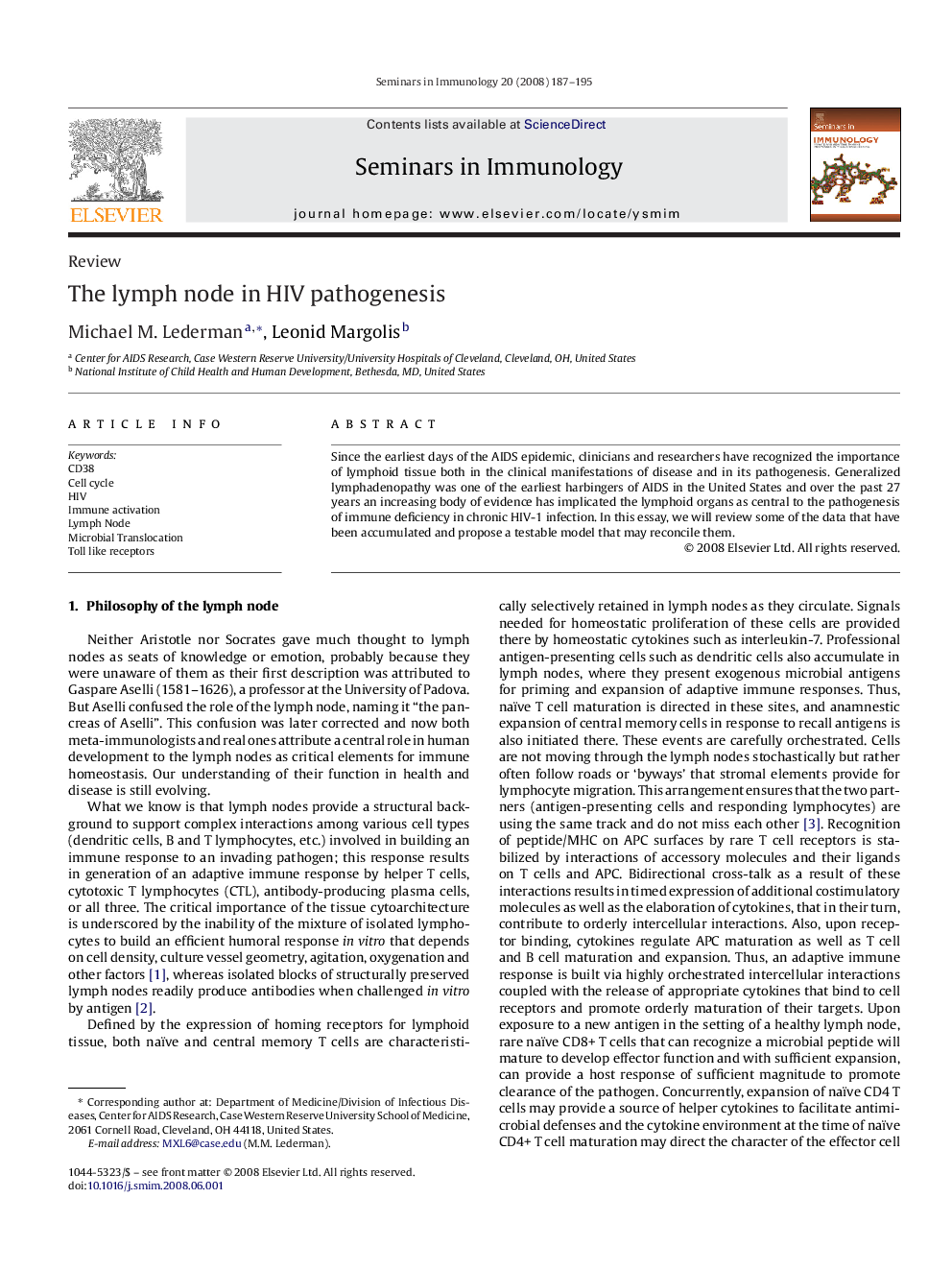| Article ID | Journal | Published Year | Pages | File Type |
|---|---|---|---|---|
| 3391702 | Seminars in Immunology | 2008 | 9 Pages |
Abstract
Since the earliest days of the AIDS epidemic, clinicians and researchers have recognized the importance of lymphoid tissue both in the clinical manifestations of disease and in its pathogenesis. Generalized lymphadenopathy was one of the earliest harbingers of AIDS in the United States and over the past 27 years an increasing body of evidence has implicated the lymphoid organs as central to the pathogenesis of immune deficiency in chronic HIV-1 infection. In this essay, we will review some of the data that have been accumulated and propose a testable model that may reconcile them.
Related Topics
Life Sciences
Immunology and Microbiology
Immunology
Authors
Michael M. Lederman, Leonid Margolis,
